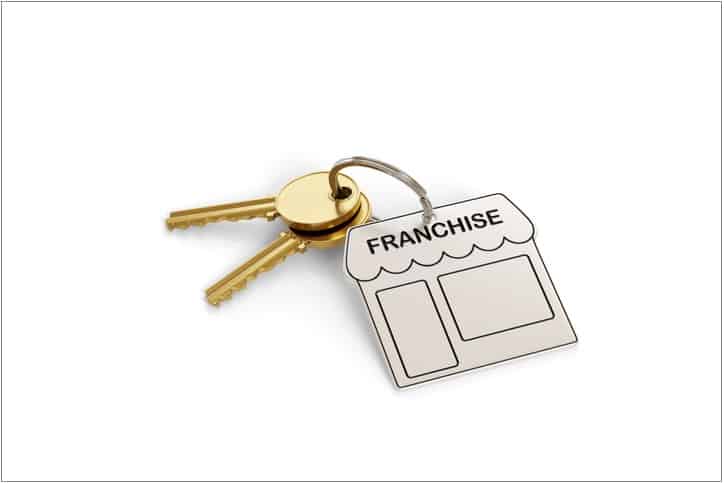What’s a franchise business?
When you sell rights to your business model and products or services, you’re franchising. Franchising your business means you’ve made it; your brand’s recognizable and other entrepreneurs want in on the profitable action.
If you’re thinking about expanding your brand this way, but you’re not sure how to franchise your business, learn all there is to learn about this growth strategy.
When should you franchise your business?
No doubt you’ve looked into the lucrative franchise business industry. You’re probably already aware of local businesses dominating franchises more than foreign businesses. Compared to 10 years back, today’s local franchises take up 55 percent of the market over 45 percent from foreign brands.
Clearly, Filipinos want the all-in, ready-made aspect of a franchise business, especially if it’s a locally owned company. But as an experienced entrepreneur, you know how one company’s success may not be the same for another company that’s applying the same strategy.
Are you ready to franchise?

Before you plunge into the unknown, make sure your brand is ripe for franchising in the Philippines.
Has your business received:
- Email inquiries for franchising opportunities?
- Consistent reports from employees about customers asking about franchising?
- Consistent compliments about the quality of your products or services?
Look through emails and other communications channels about similar inquiries or comments. Once you figure out there could be a market to franchise your business in the Philippines, take an honest assessment of your commitment to this strategy.
You’re not just going to run your business, but also guide and monitor how the franchisees run their operations.
When you decide to sell the rights to your business model and products or services, you’re putting the fate of your brand into another entrepreneur’s hands. In the right hands, your franchised business may see massive growth. But in the wrong hands, you risk the credibility and reputation of your brand.
And in the social media era, a reputation built over several years will crumble in minutes.
How to franchise your business in the Philippines
Franchising your business in the Philippines can be a great way to expand your reach and grow your brand. Once you’re sold on your commitment to franchising your business, here’s a general roadmap to get you started:
1. Self-assessment
Is your business model franchisable? Strong brand identity, proven profitability and a well-defined operating system are essential. Franchising requires replicating your success, so a standardized and documented system is key.
The products, service and overall look of the business must be so consistent that customers won’t be able to tell them apart. The standardized procedures and policies you lay out for franchisees will help them follow the quality processes that have made your business successful in its market.
2. Develop a franchise plan
Because your commercial venture will now include external partners, your business plan must reflect the changes you now have to manage. Prepare the following:
- Franchise Disclosure Document (FDD): This legal document details your business model, financials, fees, and risks. It’s crucial for potential franchisees.
- Franchise Agreement: This contract outlines the rights and obligations of both parties, including fees, territory, training, and support.
Every updated business plan for franchisors must also include:
- Operational manual
- Training program
- Management policies
- Best practices
Your franchise business plan must contain an outline of your growth over the years and your future plans for the next few years. Both will give franchisees an idea of the kind of success they can expect from getting a franchise of your business.
3. Legal considerations
Seek professional guidance. A lawyer specializing in franchising can ensure your agreements comply with Philippine regulations. The Philippines doesn’t have a single franchise law, but several laws govern aspects of franchising, like intellectual property and contracts.
4. Find a mentor

There’s no better way to learn how to franchise your business in the Philippines than from an experienced, learned franchisor.
It’s an overlooked step for some since it doesn’t seem necessary. Although it may not have bearing on the requirements for franchising your commercial venture, the insight and guidance from a mentor and already successful entrepreneur can help you maximize opportunities.
Organizations like the Association of the Filipino Franchisers, Inc. and the Philippine Franchise Association may be able to point you in the right direction.
5. Get your documents in order

As a business already in operation, it’s expected you’ll have secured your Department of Trade and Industry (DTI) or Securities and Exchange Commission (SEC) registrations.
But what legal documents do you need to establish your business as a franchise in the Philippines? Just this one: the franchise agreement. Why?
Turns out, there are no laws specific to the regulation of franchises in the country. Franchisors in the Philippines follow general laws, most specific to what’s applicable in the agreement, like the Intellectual Property Code.
Although recent directives from the government, including the DTI, have made the registration of the franchise agreement a requirement, a lot of franchising issues still need to be addressed by legislation.
For micro, small and medium-sized enterprises (MSMEs), the following terms and conditions must be covered by the franchise agreement:
- Name and description of the products and services to franchise
- Details of the responsibilities of the franchisor
- Detailed responsibilities of the MSME franchisee
- Duration of the franchise agreement and the terms and conditions for renewal;
- Details of the rights granted to the MSME franchisee (e.g., intellectual property rights)
- Details of pre-signing, or recurring fees (e.g., franchise fees imposed on the MSME franchisee)
- Provision of ‘cooling off’ period where the MSME is given the option to terminate the agreement
- Details on resolving disputes
- Mechanism for when a breach of the terms and conditions of the franchise agreement occurs
- Grounds for pre-termination, termination or expiration of the agreement
- Non-discrimination provisions
Your franchise must cover all of these minimum terms and conditions. Because it’s a contract, get a lawyer or consultant with expertise in franchising to draft it. A well-written franchise agreement protects both parties — ultimately, the brand.
According to EO 169, franchisors are responsible for registering the agreement.
6. Promote your franchise

It’s time to find your franchisees. Word-of-mouth is good, but a coordinated marketing campaign is better. You’re competing with hundreds of other franchises; according to the DTI, the Philippines has 1,300 franchises covering the retail, food and service sectors. What makes your franchise better than all the others?
Develop a marketing strategy by identifying your ideal franchisee profile and target them through industry publications, franchise expos or online platforms.
7. Be consistent with supporting your franchisees
The success of your franchising lies in the experience of your franchisees; that, and the consistency of your products or services.
Outline the type of support your business is going to provide to franchisees. Equipping your franchisees with the knowledge and tools to succeed is crucial. This may include operational training, marketing assistance, and quality control measures.
Other than training, consider financing options, site assistance and ongoing support with supply chain management.
#NinjaTip: Make sure your franchisees always have enough supplies and stocks. Ninja Restock is the fast and more affordable way to transport your stocks or inventory from warehouse to your franchisees’ stores. Learn about Ninja Restock and get a free quote today!
What are the pros and cons of franchising your business?

Franchising your business can be a tempting path to growth, but it’s not without its challenges. Here’s a breakdown of the pros and cons to consider:
Pros
- Faster expansion. Franchisees fund the opening of new locations, allowing you to rapidly expand your brand’s reach without a massive capital investment.
- Increased brand recognition. With more locations, brand awareness and recognition soar. Franchisees become local brand ambassadors.
- Motivated franchisees. Franchisees have a personal stake in the success of their outlet, often leading to high motivation and dedication.
- Access to expertise. Franchisees may bring valuable experience and knowledge to the table, fostering innovation and improvement.
- Reduced management burden. Franchisees handle the day-to-day operations of their locations, freeing you to focus on strategic growth.
- Steady revenue stream. Franchise agreements typically involve royalty fees based on franchisee sales, providing a consistent income source.
Cons
- Loss of control. Franchisees operate somewhat independently, and you may have less direct control over brand consistency and quality standards.
- Shared profits. Your profit margins decrease as you share revenue with franchisees through royalties and fees.
- Franchisee selection challenges. Choosing the wrong franchisee can damage your brand. Careful screening and selection are crucial.
- Potential for franchisee conflict. Disagreements with franchisees over marketing, operations or fees can arise and require resolution.
- High upfront costs. Developing a franchise program requires legal fees, creating a franchise disclosure document, and training materials.
- Reliance on fanchisee performance. The overall success of your brand hinges on the performance of individual franchisees.
Grow your business through franchising

Ultimately, deciding to franchise your business depends on your specific goals and resources. Carefully weigh the pros and cons to determine if franchising is the right growth strategy for your business.
If the market demands it, if you’re ready to share proprietary business details and process, if you have a good plan, start learning how to franchise your business today.
Other than expanding your brand, you’re also giving budding entrepreneurs profitable business ideas and opportunities.







